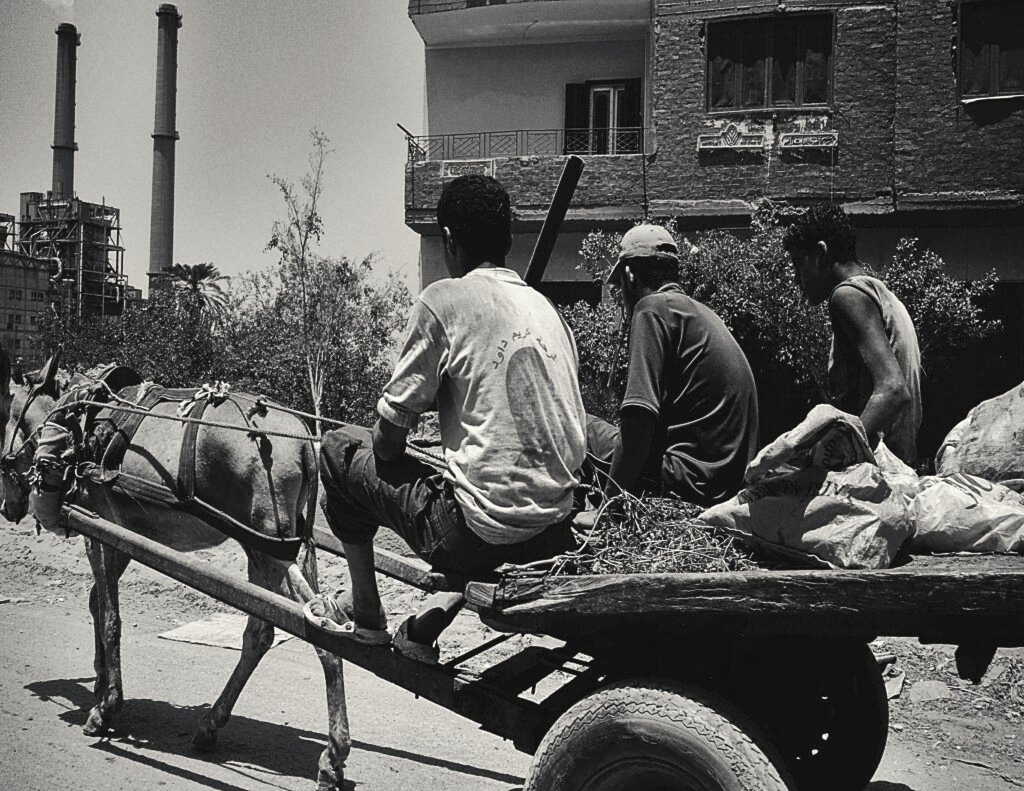
The sun hangs like a hammer over the dry hills, cracking the earth and the lips of boys with nothing but time, grit, and a stubborn mule named Rey.
Three of them—barely in their twenties–ride the creaking wooden cart down the dirt road to market.
The wheels groan. The mule snorts. And behind them, the bed is stacked with sacks of onions, green mangoes, and a few crates of eggs swaddled in cloth like fragile dreams.
Luis drives, because he’s the eldest and the loudest, squinting beneath a backward cap soaked in sweat.
Mateo, lean and sun-burned, keeps rhythm by slapping the cart’s side and whistling ranchera tunes,
while Jojo, the smallest, sits cross-legged in the back chewing sugarcane, guarding the eggs like they’re gold.
The heat makes everything shimmer—even the cactus look drunk. Each breath tastes like dust and metal. But the boys laugh anyway, joking about girls, about city life they’ve never seen, about the mule one day sprouting wings and flying them out of here.
Rey stops suddenly, ears flicking. Luis curses, hops down, kicks at a stone in the road that’s nobody’s fault. Jojo pours a capful of water for the mule, whispers: “Aguanta, amigo. Market’s not far.”
They pass old women carrying baskets on their heads, young children herding goats, a rusted truck broken down in the heat, its driver asleep in the shade of a thorn tree. The town appears like a mirage—
the smell of tamales, gasoline, and fried chicken wafting through the sweat-soaked air. Their shirts cling like second skin, but their spirits lift as the shouts of the market swell.
They made it. Again.
Not rich. Not clean. Not heroic. But with onions, mangoes, and eggs unbroken—and the sun painting their backs the color of clay. Rey, the mule, twitches his tail. Luis feeds him a slice of mango. Jojo runs ahead to flirt with the tortilla girl. Mateo counts coins they don’t yet have.
And in this hard, hot world,
they are still boys—
still laughing,
still dreaming,
still moving forward
on wooden wheels and hope.